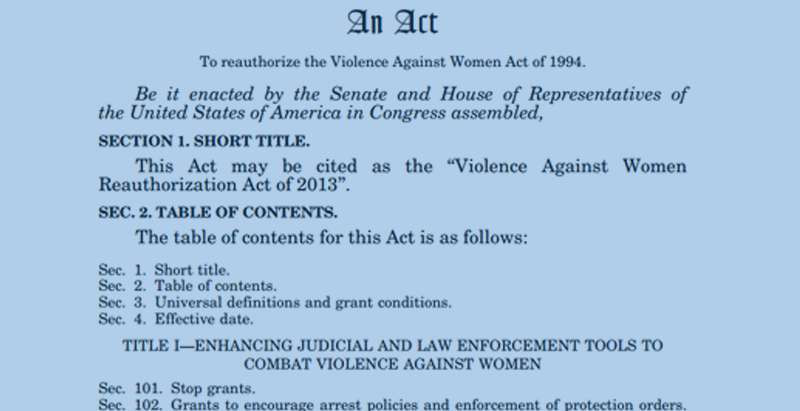You might wonder who could oppose the Violence Against Women Act. Is anybody in favor of violence against women?
Yet there are real issues here, the law’s title aside. The VAWA has a sunset provision that requires Congress to reauthorize the law, which is why it is now under debate. The Senate passed a version of it on Thursday, and the House will take up another version next month, sponsored by Cong. Sandy Adams.
This issue deserves serious analysis.
Since the statute’s enactment in 1994, observers have pointed out that the law:
- federalizes a problem that would be better handled at the state level;
- embraces gender stereotypes by casting women as victims and men as abusers; and,
- wastes money on programs that have little to do with actually discouraging violence.
And now, bill supporters have used the occasion of the reauthorization to add unrelated and extraneous provisions, including an expansion of the prosecutorial power of American Indian courts that could deny due process to non-American Indians.
VAWA now touches hot button immigration issues, which have the potential to encourage immigration fraud, false allegations of abuse, and denial of a rebuttal by the accused spouse, whether male or female.
Americans all want to deter violence, but we also need to protect that foundational principle of the presumption of innocence. As Frances McInnis wrote in Slate: “People who are wrongly accused can face high legal fees, a ruined reputation, and even jail time.” Needed resources like shelters and legal aid can be taken by false accusers, denying real victims of abuse access to these supports. That result runs directly counter to the VAWA’s spirit.
“The American people deserve results, not reckless demagoguery,” Senator John Cornyn wrote. IWF agrees and supports looking at the true provisions of the law, and not letting the name of the bill eliminate our faculty to critically investigate whether the law accomplishes its goals and whether it is the least intrusive and cost effective manner of achieving the envisioned ends.
First published on Independent Women’s Forum in April 2012








